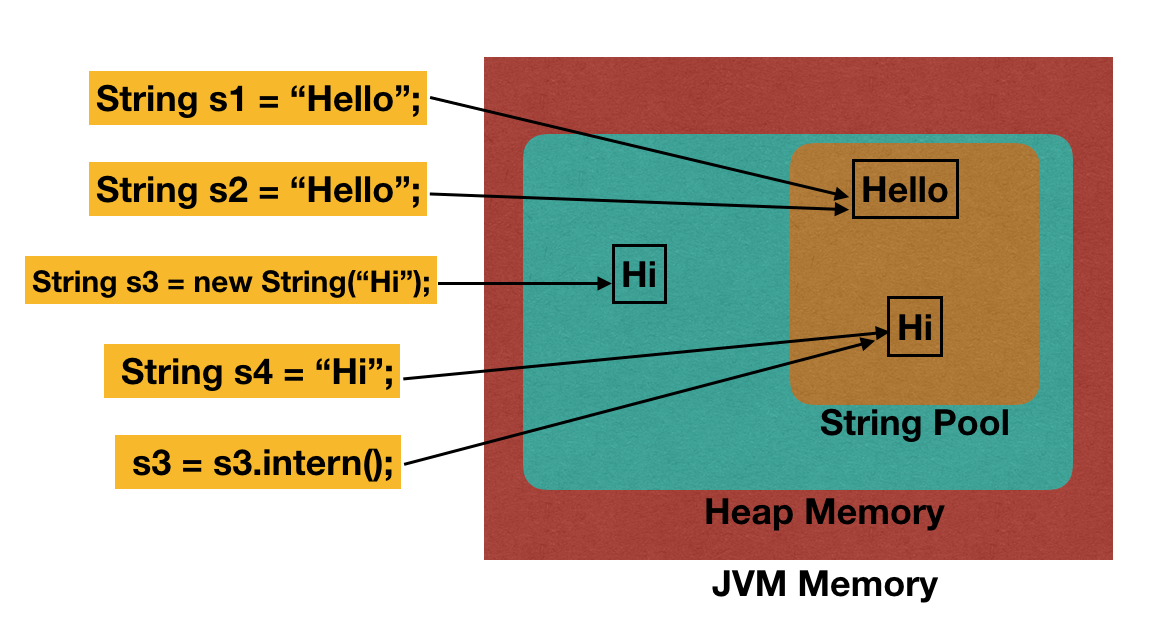Discovering the Benefits of Unalterable Strings in Modern Shows Paradigms
In the realm of contemporary programs paradigms, the principle of immutable strings stands as a foundation of durable software application development. The benefits they supply surpass plain comfort; they essentially alter the means data is managed within applications. By taking on unalterable strings, designers can make sure enhanced information stability, improved thread safety and security, streamlined debugging procedures, enhanced safety and security steps, and reliable efficiency optimization. These benefits act as a testimony to the extensive influence that accepting immutability can have on the reliability and effectiveness of software systems.
Enhanced Information Integrity

By avoiding the alteration of string items, immutability eliminates the danger of unintended modifications to the information they hold. This not just enhances the safety of the info yet also enhances the integrity of the code that relies on these strings.
Immutability additionally supports more secure multithreading environments, as simultaneous accessibility to unalterable strings does not pose the risk of data corruption with simultaneous alterations. This residential or commercial property simplifies the procedure of dealing with strings in parallel programming situations.
In significance, immutability acts as a protective guard around the information kept within strings, enhancing their honesty by ensuring that as soon as defined, their worths stay unmodified throughout the program's implementation.

Enhanced String Safety And Security
Immutable strings boost the thread safety and security of programs by making sure that as soon as a string item is produced, its value can not be modified. This residential or commercial property removes the risk of concurrent strings trying to modify the exact same string concurrently, which can result in information corruption or inconsistent states in the program - Why are strings immutable in Java?. In a multi-threaded setting, where multiple threads gain access to and manipulate information concurrently, the immutability of strings supplies a level of security by assuring that the information stays the same throughout its lifecycle
Streamlined Debugging Processes
Given the boosted thread safety and security assisted in by immutable strings, a considerable advantage develops in the world of simplified debugging procedures. Unalterable strings, when created, can not be altered, making it simpler to trace the flow of information and determine the resource of bugs in a program. This immutability ensures that strings continue to be constant throughout the execution of the program, minimizing the chance of unexpected modifications that might bring about mistakes.
When debugging with mutable strings, designers often run into problems where a string's worth is modified unintentionally, making it challenging to identify the origin cause of an insect. Nevertheless, with unalterable strings, the information continues to be the same, allowing developers to concentrate on assessing the actual reasoning of the code rather than tracking down where and when a string was modified improperly.
Additionally, immutable strings streamline the debugging process by enabling easier recreation of pests. Since immutable strings Learn More Here do not transform state, programmers can recreate and study insects better, resulting in quicker identification and resolution of concerns within the codebase. This streamlined debugging operations eventually adds to higher software program high quality and boosted general advancement efficiency.

Increased Safety And Security Actions
Enhancing data defense and fortifying system stability, the usage of immutable strings in software program applications adds substantially to enhanced security actions. Unalterable strings also play a vital duty in avoiding common security vulnerabilities such as buffer overflows and SQL shot strikes, as attempts to adjust string information at runtime are inherently limited.
Furthermore, the immutability of strings enhances the predictability of program actions, making it much easier to verify inputs and avoid unexpected modifications that could endanger security. This predictability simplifies the procedure of bookkeeping and verifying code, making it possible for developers to determine possible security loopholes better. Generally, including immutable strings into software application growth practices not only enhances the effectiveness and dependability of applications however additionally strengthens their durability against safety threats.
Efficient Performance Optimization
Building upon the foundation of enhanced safety actions achieved via the use of unalterable strings, a key element to consider in software advancement is effective efficiency optimization. When handling mutable strings, procedures like concatenation or substring creation frequently lead to the production of brand-new string objects, bring about memory expenses and increased handling time. Nevertheless, with immutable strings, these operations can be maximized to boost efficiency. By permitting strings to stay unchangeable and continuous, immutable strings facilitate better memory management and caching opportunities, eventually enhancing the total effectiveness this link of the software.
Since immutable strings can not be modified once produced, they can be shared throughout strings without the danger of unanticipated modifications, decreasing the demand for synchronization devices and enhancing concurrency. Unalterable strings simplify debugging procedures as designers can rely on that a string's value will certainly stay regular throughout the program's implementation, removing possible errors caused by mutable state adjustments.
Verdict
To conclude, the benefits of making use of unalterable strings in modern-day programming paradigms can not be overemphasized. Improved information honesty, boosted string safety and security, streamlined debugging processes, raised safety steps, and efficient performance optimization all contribute to the general effectiveness of programming tasks. By incorporating unalterable strings right into programs methods, designers can take advantage of a much more robust and trusted codebase.
Immutability, an essential function of strings in programming languages such as Java and Python, makes certain that as soon as a string things is produced, it can not be changed or customized.Immutable strings boost the thread safety of programs by guaranteeing that once a string things is developed, its value can not be modified. Unalterable strings also play a crucial function in protecting against common safety and security vulnerabilities such as barrier overflows and SQL shot assaults, as attempts to adjust string data at runtime are inherently limited.
By allowing strings to stay unchangeable and continuous, immutable strings facilitate better memory administration and caching opportunities, eventually boosting the total effectiveness of the software application.
Unalterable strings streamline debugging processes as developers can her response trust that a string's worth will certainly remain regular throughout the program's execution, getting rid of prospective errors created by mutable state adjustments.